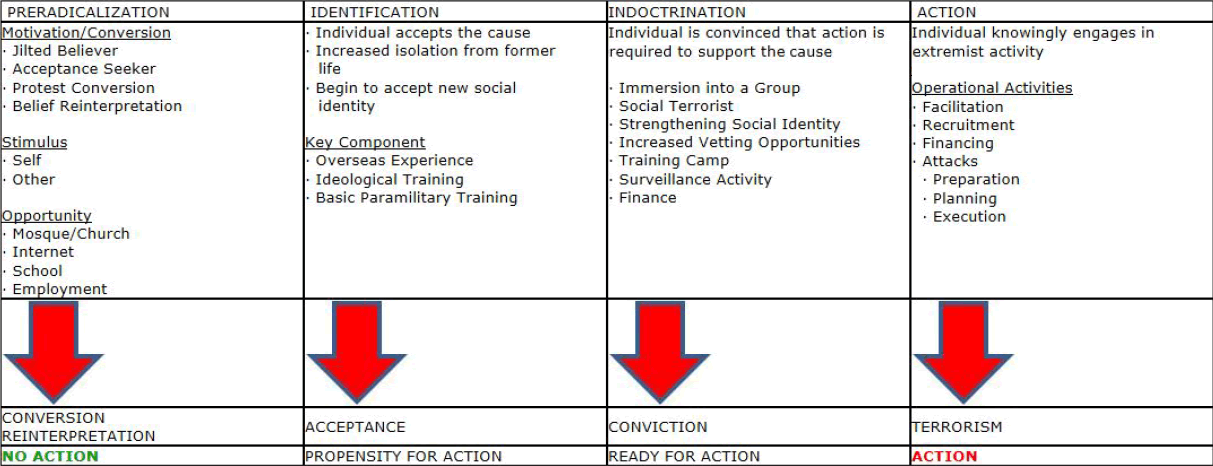- CAC Home
-
About CAC
-
CAC Senior Leaders
Commanding GeneralCombined Arms CenterLTG Milford H. Beagle Jr.Deputy to the
Commanding GeneralCombined Arms CenterMr. Gregg Thompson
Command Sergeant MajorCombined Arms CenterCSM Stephen Helton
Chief of StaffCombined Arms CenterCOL Trent D. UptonCommand Chief Warrant OfficerCombined Arms CenterCW5 Aaron H. Anderson
Deputy
Commanding GeneralCAC ARNGBG Charles MorrisonDeputy
Commanding GeneralCAC USARBG Katherine A. TrombleyDeputy Commanding General - EducationArmy UniversityBG David FoleyDeputy Commanding GeneralCAC - TrainingBG Scott WoodwardDirectorMission Command Center
of ExcellenceCOL Bryan Babich
-
CAC Senior Leaders
-
Organizations
-
CAC HQ
-
CAC Subordinate Organizations
- The Army University (Army U)
- Combined Arms Center - Training (CAC-T)
-
Mission Command Center of Excellence (MCCoE)
- Leadership
- Mission Command Resources
- SharePoint
- Army Joint Support Team (AJST)
- Air Land Sea Space Application Center (ALSSA)
- Combined Arms Doctrine Directorate (CADD)
- Center for Army Leadership (CAL)
- Directorate of Training (DOT)
-
Force Modernization Proponent Center (FMPC)
- Command and Control Integration (C2I)
- Security Force Assistance Proponent (SFAP)
- Contact Us
- Peacekeeping & Stability Operations Institute (PKSOI)
-
Key Partner and Supporting Units
- » Fort Leavenworth Garrison
- » Presidio of Monterey Garrison
- » 902d Military Intelligence Group
- » Munson Army Health Center (MAHC)
- » Joint Center for International Security Force Assistance (JCISFA)
- » U.S. Disciplinary Barracks
- » Community Health Promotion Council (CHPC)
- » Red Team Education
- Contact Us
- Training & Doctrine Command (TRADOC)
- Mission Command Capability Development and Integration Directorate
- 15th MP Brigade
- Centers of Excellence
- Branch Schools
-
Non-Branch Schools
-
Command and General Staff College (CGSC)
- Leaders
- Mission & Vision
- Students
-
Command and General Staff School (CGSS)
- Inbound Class Information
- Department of Distance Education (DDE)
- Department of Command and Leadership (DCL)
- Department of Sustainment and Force Management (DSFM) (Previously DLRO)
- Satellite Campus Program
- Air Force Element (AFELM)
- Navy Element (NAVELM)
- Marine Corps Element (MCELM)
- International Military Student Division (IMSD)
- Contact Us
- School of Advanced Military Studies (SAMS)
- School for Command Preparation (SCP)
- Sergeants Major Academy (SGM-A)
- CGSC Degree Programs
- Registrar
- CGSC News Archive
- Contact CGSC
-
Warrant Officer Career College (WOCC)
- About USAWOCC
- Warrant Officer Program
- Warrant Officer Blackboard Enrollment
- Warrant Officer Courses
- Benefits, Pay, and financial Matters
- Fort Rucker Information
- News/Media
- Retirement/Transition Links
- Warrant Officer Career College Contact Information
- Center for the Army Profession and Leadership (CAPL)
- Western Hemisphere Institute for Security Cooperation (WHINSEC)
- SHARP Academy
- U.S. Army Sergeants Major Academy (USASMA)
- The U.S. Army Inspector General School (TIGS)
-
Command and General Staff College (CGSC)
-
CAC HQ
- References
- Products & Resources
Insider Threat & Terrorism
Indicators of a Potential Insider Threat
- Encouraging disruptive behavior or disobedience to lawful orders.
- Expressing hatred or intolerance of American society or culture.
- Expressing sympathy for organizations that promote violence.
- Expressing extreme anxiety about or refusing a deployment.
- Associating with or expressing loyalty or support for terrorists.
- Browsing websites that promote or advocate violence against the U.S, or distributing terrorist literature or propaganda via the Internet.
- Expressing extreme outrage against U.S. Military operations.
- Advocating violence to achieve political / religious / ideological goals.
- Providing financial or other materiel support to a terrorist organization.
- Seeking spiritual sanctioning for or a voicing an obligation to engage in violence in support of a radical or extremist organization or cause.
- Membership in a violent, extremist or terrorist group, or adopting an ideology that advocates violence, extremism, or radicalism.
- Purchasing bomb making materials or obtaining information on bomb construction and use.
- Engaging in paramilitary training with radical or extremist organizations, either home or abroad.
- Having ties to known or suspected international terrorists, extremists, radicals, or their supporters.
- An employee released from or not selected for employment, promotion, or bonus who exhibits severe signs of PTSD, and who appears disgruntled and violent.
In isolation, these activities may not be indicators of potential violence or terrorist activity, but may indicate that the individual is at risk of becoming an Insider Threat. These activities should be reported immediately to your Chain of Command and Army Counterintelligence.
Insider Threat Indicators (ALARACT 322/2009)
- Advocating violence, the threat of violence, or use of force to achieve goals that are political, religious or ideological in nature.
- Advocating support for international terrorist organizations or objectives.
- Providing financial or other material support to a terrorist organization or to someone suspected of being a terrorist.
- Association with or connections to known or suspected terrorist.
- Repeated expression of hatred and intolerance of American society, culture, government, or principles of the U.S. Constitution.
- Repeated browsing or visiting internet websites that promote or advocate violence directed against the United States or U.S. Force, or that promote international terrorism or terrorist themes without official sanction in the performance of duties.
- Expressing an obligation to engage in violence in support of international terrorism or inciting others to do the same.
- Purchasing bomb making materials or obtaining information about the construction of explosives.
- Active attempts to encourage others to violate laws, disobey lawful orders or regulations, or disrupt military activities.
- Family ties to known or suspected international terrorist or terrorist supporters.
The Radicalization Process


